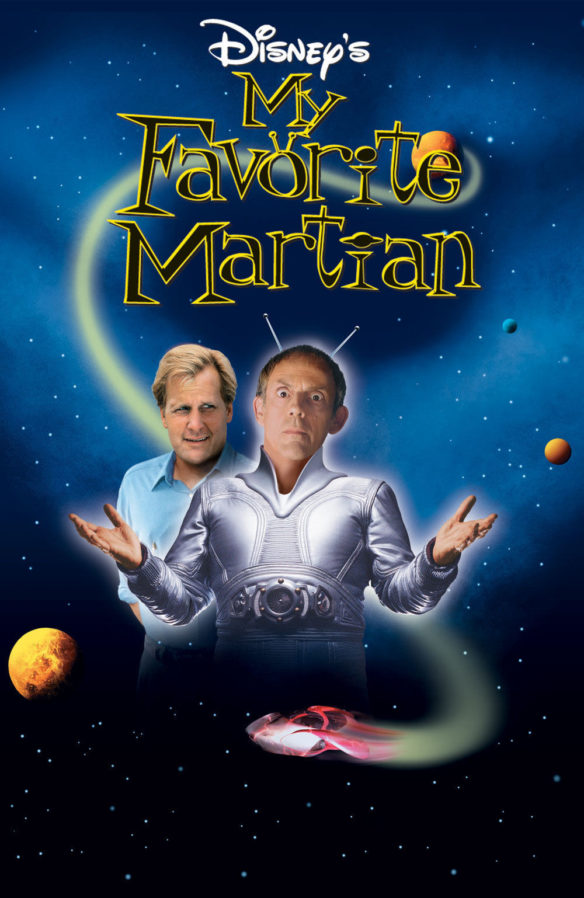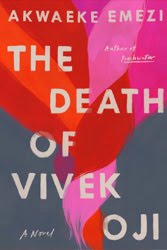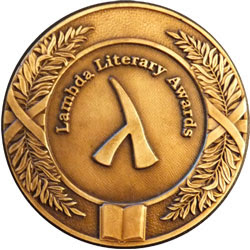(1) TAKE SANFORD’S SFF MAGAZINE SURVEY. Jason Sanford is running a new survey about how people view SFF genre magazines, described in his twitter thread about the survey. Sanford originally did a survey at the end of 2019 about people’s views on SFF magazines (also shared on File770). “I’d planned to release those results in the first quarter of 2020 but the COVID pandemic intervened. But having those pre-pandemic survey results allows me to run an identical copy of the survey right now and see if people’s views of SFF magazines changed over the last two years.”
Here’s the survey link at Google Docs.
(2) AURORA AWARDS TIMELINE. Members of the Canadian Science Fiction and Fantasy Association have until midnight tonight (Eastern time) to add genre works to the Aurora Awards eligibility list that were done by Canadians in 2021.
On Saturday, February 19, they will open up the nomination forms so CSFFA members can select up to five different works in each of the categories to be on this year’s final Aurora Award ballot. Nominations will be open for five weeks – closing on March 26 at 11:59 pm Eastern.
(3) PROFIT IN ITS OWN LAND. The Guardian finds that entering public domain takes an unexpected toll on popular classics: “The Great Gapsby? How modern editions of classics lost the plot”.
“So we beat on, boats against the current, borne back ceaselessly into the past.” It is one of the most memorable literary payoffs in history, the end of F Scott Fitzgerald’s defining novel of the 20th century, The Great Gatsby.
Yet this famous ending will be lost to many readers thanks to the proliferation of substandard editions, one of which loses the last three pages and instead finishes tantalisingly halfway through a paragraph.
…In his study, to be published next month in the F Scott Fitzgerald Review, West contrasts the focus on accuracy of Fitzgerald’s publisher, Scribner, with today’s “textual instability incarnate”.
He pored over 34 new print editions released in the past year, from established and independent publishers and some that list neither the place nor publisher, although there are further digital ones: “Six are competently done, but the rest are rather careless, done just to pick up a slice of the yearly sales. While it was still in copyright, Scribner’s sold about half a million copies a year, which is remarkable for a backlist title.”
To his dismay, 17 editions dropped Fitzgerald’s dedication to his wife, Zelda: “Her name has been erased – a serious problem … because she was Fitzgerald’s muse. She was partly the inspiration for Daisy Buchanan.”
(4) A LONG GOODBYE. Jesse Walker shares a few quick thoughts about a new anthology in “Dangerous Visions and New Worlds” in Reason.
…The best thing about Dangerous Visions and New Worlds: Radical Science Fiction, 1950–1985, an uneven but often incisive anthology of essays from PM Press, is that it covers the New Wave moment without limiting itself to the New Wave movement. The most talented New Wave writers are covered here—there are essays on J.G. Ballard, Octavia Butler, Barry Malzberg, and others—but so are TV tie-ins and porny paperbacks, showing how such ideas seeped through society…
(5) NOMMO SHORTLISTED WRITERS Q&A. The British Science Fiction Association and the Nommos Awards will hold a virtual event in March – date to be announced.
Last year the BSFA has funded 5 Nommo shortlisted writers to virtually attend Worldcon, Discon 3. This March (date to be confirmed) we are holding a Q&A panel, based on the questions submitted by our readers. We are looking forward to receiving your questions on our facebook and twitter, or on a special email for the event: [email protected]
Here is the list of participants in our Q&A.
Nana Akosua Hanson and Francis Y Brown (AnimaxFYB Studios)
Winners of the 2021 Nommo Award for best comic writer and best comic artist. All ten chapters of the winning comic are available here.
Nihkil Singh
Short-listed for the 2017 Illube Nommo Award for Taty went West and for 2021 Ilube Nommo Award for Club Ded.
His story ‘Malware Park’ is available here.
Oghenechovwe Donald Ekpeki
The winner of the 2019 Nommo Award for Best Short Story and the 2021 Nommo Award for best novella for Ife-Iyoku: The Tale of Imadeyunuagbon, available in Dominion An Anthology of Speculative Fiction From Africa and the African Diaspora, edited by Zelda Knight and Oghenechovwe Donald Ekpeki. ‘The Witching Hour’ won the Nommo award for best short story in 2019. Here is another story of his, ‘The Mannequin Challenge’
Stephen Embleton
His novel Soul Searching was shortlisted for the 2021 Ilube-Nommo Award. We offer our readers a chance to read an extract from it. His speculative fiction available to read online includes “Land of Light” – Imagine Africa 500 speculative fiction anthology (2015)
Tlotlo Tsamaase
shared the 2021 Nommo Award with Innocent Chizaram Ilo.
Her winning story ‘Behind Our Irises’ was part of Brittle Paper’s anthology Africanfuturism edited by Wole Talabi is available to read here. Her most recent fiction is “Dreamports” and “District to Cervix – The Time Before We Were Born”
Tochi Onyebuchi
won the 2018 Ilube-Nommo Award for his novel Beasts Made of Night
His novella Riot Baby was shortlisted for this year’s Nommo Award, and won in its category the Fiyah Award. A free excerpt is available here. His novel Goliath is expected in January of this year. A free excerpt is available here.
(6) MEDIA BIRTHDAY.
1999 — [Item by Cat Eldridge] Twenty-three years ago, the film remake of the My Favorite Martian series premiered. It was directed by Donald Petrie as written by Sherri Stoner and Deanna Oliver, both had been writers on the Tiny Toon Adventures and Animaniacs.
It has a good cast including Jeff Daniels, Christopher Lloyd, Elizabeth Hurley, Daryl Hannah, Wallace Shawn, Christine, Ebersole and Wayne Knight. Ray Walston even showed up as Armitan/Neenert, a long ago-stranded Martian who has been masquerading as a government operative for years.
Some critics did like it, some didn’t. As Robert Ebert of the Chicago Sun-Times put it “The movie is clever in its visuals, labored in its audios, and noisy enough to entertain kids up to a certain age. What age? Low double digits.” But Kevin Thomas of the Los Angeles Times stated “Walston displays a crisp wit and blithe sense of whimsy otherwise lacking in this loser.”
What it didn’t make is money. On a budget of sixty-five million, it only made thirty-seven million. And it only gets a thirty percent rating at Rotten Tomatoes among audience reviewers.

(7) TODAY’S BIRTHDAYS.
[Compiled by Cat Eldridge.]
- Born February 12, 1920 — Louis Russell Chauvenet. Member of First Fandom, and a founder of the Boston’s Stranger Club which ran the first Boskones. He’s credited with coining the term “fanzine” and may have also coined “prozine” as well. He published a number of zines from the later Thirties to the early Sixties. (Died 2003.)
- Born February 12, 1929 — Donald Kingsbury, 93. He’s written three novels (Courtship Rite, The Moon Goddess and the Son and Psychohistorical Crisis) that could be akin to the Asimov’s Foundation novels. Clute at EOSF says that the Asimov estate explicitly refused him permission to set Psychohistorical Crisis in the Foundation universe. Now there’s a story there, isn’t there?
- Born February 12, 1933 — Juanita Ruth Coulson, 89. She’s best known for her Children of the Stars series. She was a longtime co-editor of the Yandro fanzine with her husband, Buck, and she’s a filker of quite some renown. Yandro won the Best Fanzine Hugo at Loncon II in 1965.
- Born February 12, 1942 — Terry Bisson, 80. I’m very fond of “Bears Discover Fire” which won a Hugo at Chicon V. And yes, it won a Nebula and a Sturgeon as well. Some may like his novels but I’m really in love with his short fiction which why I’m recommending three collection he’s done, Bears Discover Fire and Other Stories, In the Upper Room and Other Likely Stories and TVA Baby and Other Stories.
- Born February 12, 1945 — Maud Adams, 77. Best remembered for being two different Bond girls, first for being in The Man with the Golden Gun where she was Andrea Anders, and as the title character in Octopussy. She shows up a few years later uncredited in a third Bond film, A View to Kill, as A Woman in Fisherman’s Wharf Crowd.
- Born February 12, 1945 — Gareth Daniel Thomas. His best-known genre role was as of Roj Blake on Blake’s 7 for the first two series of that British show. He also had a minor role in Quatermass and the Pit, and had one-offs in The Avengers, Star Maidens, Hammer House of Horror, The Adventures Of Sherlock Holmes, Tales of the Unexpected, Randall & Hopkirk (Deceased) and Torchwood. (Died 2016.)
- Born February 12, 1954 — Stu Shiffman. To quote Mike in his post, he was “The renowned fan artist, who generously shared his talents in fanzines, apas and convention publications, received the Best Fan Artist Hugo Award in 1990 and the Rotsler Award in 2010.” You can read Mikes’ gracious full post on him here. (Died 2014.)
- Born February 12, 1960 — Laura Miller, 62. Author of an essay whose title tickles me to the end: “It’s Philip Dick’s World, We Only Live In It“. Originally appearing in the New York Times, 24 November 2002, it was reprinted in PKD Otaku, #9 which you can download here.
(8) COMICS SECTION.
- The Argyle Sweater makes a cartoon from a typo that has probably rolled through all of our heads at some time.
- Pearls Before Swine discusses the hidden dangers of the writing life.
(9) WHO DREW? First Fandom Experience shows its detective chops and connections as they seek out the creator of this Thirties-vintage “Mysterious Early Fan Art”.
… Regarding the style of the piece, we believe it’s directly inspired by the work of Frank R. Paul — most specifically, this piece from Amazing Stories Quarterly, v1n1, Winter 1928, illustrating “The Moon of Doom” by Earl L. Bell….
(10) THAT’S NOT GIBBERISH, THAT’S SFF. Got to love this. Phil Jamesson “reading the first page of any sci-fi novel”. [Via Boing Boing.]
(11) BAKULA TO THE FUTURE. Will Scott Bakula be involved? Movieweb rounds up “Everything We Know About the Quantum Leap Reboot”.
…In Quantum Leap’s case, details of the new series are still sketchy, but it is believed that the premise will make the new series a continuation rather than a full reboot. Set in the same universe as the original, the new series will feature a new team of scientists resurrecting the Quantum Leap project, and attempting to find out what happened to Sam, whose fate was famously left up in the air by the original’s ambiguous finale….
(12) JWST TAKES SELFIE. “NASA beams back unexpected selfie of the Webb telescope from 1 million miles away” – see the image at Mashable.
We thought we’d never see the giant James Webb Space Telescope ever again.
The space observatory has traveled to its distant cosmic outpost, nearly a million miles from Earth. It doesn’t carry any surveillance cameras dedicated to monitoring the instrument as it traveled through space and unfurled. They were too complicated, and risky, to add.
But NASA still found a way to take a (somewhat coarse and eerie) selfie.
The space agency used an auxiliary lens on its powerful Near-Infrared Camera, or NIRCam, which will peer at some of the earliest stars and galaxies that formed in the universe, over 13.5 billion years ago.
“This special lens is meant for engineering, not science, and allows NIRCam to capture an ‘inward-looking’ image of the primary mirror,” NASA tweeted. “This image helps us to check that the telescope is aligned with the science instruments.”…
(13) YOUR NOTHING IN THE WAY STATION. This Budweiser Super Bowl commercial uses a lot of sf-style effects. But if that’s not enough reason to view it, you can get a head start by skipping it now!
[Thanks to Mike Kennedy, Martin Morse Wooster, JJ, John King Tarpinian, Rob Thornton, Andrew Porter, Michael Toman, and Cat Eldridge for some of these stories. Title credit belongs to File 770 contributing editor of the day Andrew (not Werdna).]






